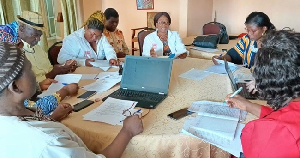High-level energy experts from the ten member countries of the Economic Community of Central African States (ECCAS) and the Central African Economic and Monetary Community (CEMAC) are currently seeking ways of harnessing their efforts to maximize enormous energy potentials with the intention of providing the people with modern energy.
They began meeting in Yaounde yesterday October 14 to finalise a regional policy code-named, “ECCAS & CEMAC White Paper: Regional policy for universal access to modern energy services and economic and social development,” for its eventual endorsement by the Ministers of Energy of the sub region when they converge in Yaounde next Friday October 17.
The document drafted, thanks to an initiative of ECCAS and CEMAC with technical and financial support of the United Nations Development Programme (UNDP) has strategies to provide electricity to an additional 63 million people between 2014-2030.
Successive speakers at the opening ceremony yesterday chaired by the Inspector General in the Ministry of Energy and Water Resources, Ngadeu Molapie Hugues, said the sub region can boast of one of the best energy potentials on the continent but owing to ill-adapted policies, access to modern energy remains a challenge.
It emerged from discussions that ECCAS and CEMAC zones alone possess 57 per cent; more than half of Africa’s hydropower potentials, yet electricity sector remains characterized by limited installed capacity and interconnections within and between regions, inadequate access rate and quality of service below international standards.
“This situation is mainly due to the fact that infrastructures do not respond to the current needs or development of the potentials of the region,” they agreed.
According to Daniel Schronth of Sustainable Energy for All (SE4ALL), an initiative launched by the UN Secretary General, the region needs to seize the potentials, address necessary reforms and embark on sustainable growth that will benefit all the people.
He said in the 2014 publication of the International Energy Agency, Central Africa has huge discrepancy between potentials and the reality on the ground and that if there is no fundamental change in terms of policies, by 2040, there will still be more than half of the people without access to electricity.
“Now is the time to act and countries must take the lead,” he said. The experts are therefore holding discussions to finalise the document as well as propose an implementation timetable for validation by Ministers on Friday.
Infos Business of Thursday, 16 October 2014
Source: Cameroon Tribune













